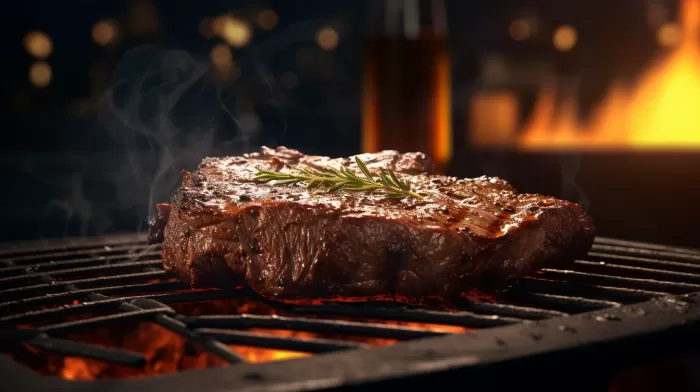Carcinogens are everywhere, and if you enjoy a good barbeque, you may be adding to your exposure. Cooking meat at high temperatures, like grilling, produces carcinogenic polycyclic aromatic hydrocarbons (PAHs). These compounds have been linked to various cancers, including colorectal cancer, and are also found in cigarette smoke and car exhaust. But don’t worry! That doesn’t mean you have to give up your beloved summer pastime. By following a few simple tips, you can significantly reduce the formation of PAHs and enjoy a healthier cookout.
Marinade with Beer
An easy way to reduce the formation of PAHs is to marinade your meat with beer before it goes on the grill. Researchers at Ohio State University found that meat soaked in beer reduced the formation of eight types of PAHs by about 50%. In their tests, dark beer worked the best. Plus, using a beer marinade adds a delicious flavor to your meats!
Trim the Fat
It’s not just the high heat that causes PAHs – it’s also the fat. When fat drips onto hot coals or the lava rocks found in propane grills, it creates PAH-laden smoke which then rises and coats the meat. To minimize this, trim visible fat from your cuts of meat before grilling. Leaner cuts will produce less smoke and fewer PAHs.
Choose Lean Meats
In addition to trimming fat, opt for leaner cuts of meat and proteins that produce fewer PAHs. Fish, skinless chicken, and turkey are all naturally leaner options. When choosing red meat, look for those labeled as “loin” or “round,” as these tend to be the leanest.
Grill at Lower Temperatures
Grilling meat at high temperatures for an extended period of time increases the production of PAHs. To minimize this, cook your meat at lower temperatures and/or for a shorter amount of time. If you’re worried about undercooked food, use a meat thermometer to ensure the inside reaches the proper temperature and is safe to eat.
Flip More Frequently
Another way to reduce PAH formation and cook your meat more evenly is to flip it more frequently. This prevents the surface temperature from getting too hot and producing more PAHs.
Avoid Charring
When meat is charred, it’s a sign that PAHs have formed. Therefore, avoid charring your food and promptly scrape away any charred bits before consuming. You can prevent charring by controlling flare-ups and adjusting the heat settings on your grill.
Use Foil or a Mat
To keep fat from dripping onto the heat source and creating PAH-laden smoke, place a piece of foil or a grill mat on the grates before adding your meat. Make sure to poke a few holes in the foil for ventilation.
Incorporate Fruits and Veggies
Grilling isn’t just for meat. Vegetables and fruits don’t produce PAHs and can be a tasty and healthy addition to your cookout. Plus, many fruits and veggies are rich in cancer-fighting antioxidants, making them a great complement to your grilled meals. Try grilling asparagus, peppers, zucchini, pineapple, or even peaches – the possibilities are endless!
Clean Your Grill Regularly
A clean grill is essential for reducing PAH production. Residue from previous barbecues can contribute to the formation of PAHs when it comes into contact with new meat. A dirty grill also increases the risk of flare-ups and charring which, as we discussed earlier, leads to higher PAH levels.
Enjoy in Moderation
In today’s world, it’s impossible to completely avoid exposure to carcinogens. However, by following these tips, you can reduce your risk and enjoy a healthier grilling experience. As always, moderation is key. Enjoy your grilled meals, but balance them with other cooking methods and a varied diet full of antioxidant-rich fruits and vegetables.
By incorporating these techniques into your grilling routine, you’ll be well on your way to a healthier and more delicious cookout experience. Happy grilling!



